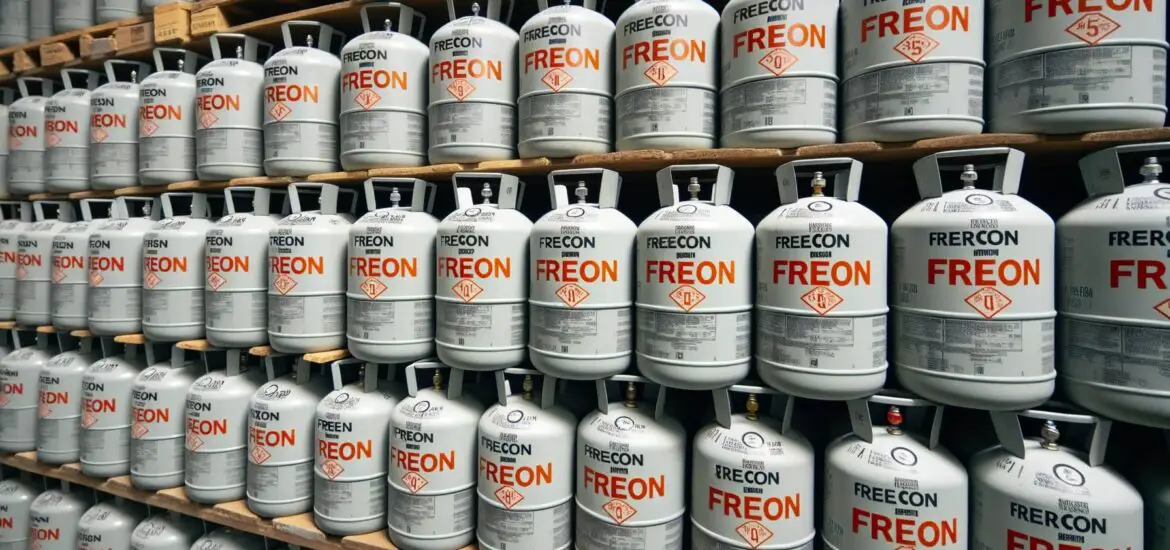If you’re worried about the symptoms of too much Freon in your air conditioning or refrigeration system, you’ve landed on the right page. An imbalance in the amount of Freon can result in both mechanical and health-related concerns, so it’s crucial to be informed. Let’s explore this subject in detail.

Table of Contents
Physical Symptoms of Too Much Freon
While Freon is generally contained within your cooling system, leaks or improper handling can expose you to this chemical. Here are the symptoms you need to watch out for:
Headaches: Mild exposure can often result in headaches, signaling that something is off.
Dizziness: More severe exposure can lead to feelings of dizziness or lightheadedness.
Nausea: In some instances, exposure to high levels of Freon can cause nausea or upset stomach.
Eye, Nose, or Throat Irritation: Freon can cause irritation in the eyes, nose, or throat when there is direct exposure.
Asphyxiation: At extremely high levels of exposure, Freon can displace oxygen, leading to suffocation. This is a life-threatening situation and requires immediate medical attention.
If you or anyone else experiences these symptoms, it’s crucial to get fresh air immediately and seek medical advice.
Recognizing Signs in Your System
You don’t have to be an HVAC expert to notice that something might be wrong with your air conditioning or refrigeration system. Here are signs that could indicate excess Freon:
Inadequate Cooling: If your system is running but not cooling the space effectively, this could be a sign.
Strange Noises: Hissing or bubbling noises can indicate a refrigerant leak, which might mean there’s too much Freon in the system.
Rising Energy Bills: An unexpected and unexplained increase in your electricity bills can often signal system inefficiency, possibly due to excess Freon.
Cloudy Sight Glass: Some systems have a sight glass where you can see the refrigerant. A cloudy or bubbly appearance can indicate excess Freon.
Reduced Airflow in Cars: In automotive air conditioning, reduced airflow from the AC vents could indicate a Freon issue.
If you observe any of these symptoms, it is advisable to consult a qualified technician for diagnosis and repair.
You can get this A/C Pro High Mileage R-134a A/C Recharge Auto Air Conditioner Refrigerant Refill from Walmart for your car if it uses R-134a refrigerant.
Why Too Much Freon is a Problem
Too much Freon in your air conditioning or refrigeration system can create several interconnected issues:
Reduced Cooling Efficiency: The primary function of Freon is to absorb heat and provide a cooling effect. When there is too much Freon, the system becomes less efficient at absorbing heat, which results in reduced cooling.
Increased Energy Costs: A system that’s not cooling efficiently is a system that’s working harder than it needs to. This will lead to increased energy usage and higher utility bills.
Pressure Build-Up: Excess Freon can cause undue pressure within the cooling system. Most air conditioning and refrigeration systems are designed to operate within a certain pressure range, and exceeding this can lead to mechanical failures, such as leaks or even bursting.
Environmental Concerns: Freon, particularly older types that are being phased out, can be harmful to the ozone layer. Any leakage due to system failures can have environmental consequences.
If left unaddressed, these issues can compound over time, leading to total system failure and costly replacements, not to mention the potential health risks associated with Freon exposure.
What to Do If You Suspect Too Much Freon
Handling Freon requires specialized knowledge and equipment. If you suspect that there’s too much Freon in your system, here’s what you should do:
Contact a Qualified Technician: Only professionals with the appropriate certifications should handle Freon, as incorrect methods can be dangerous.
Do Not Try to Fix It Yourself: The removal of excess Freon is not a DIY job. You could risk exposure or damage to your system.
System Diagnosis: A technician will conduct tests and measurements to determine if there’s an excess of Freon in your system.
Safe Removal: If excess Freon is confirmed, the technician will safely remove the necessary amount using specialized equipment.
Check for Leaks: Often, issues with Freon levels indicate other problems like leaks that the technician should address.
Taking immediate action is essential to prevent further complications, from both a mechanical and health standpoint.